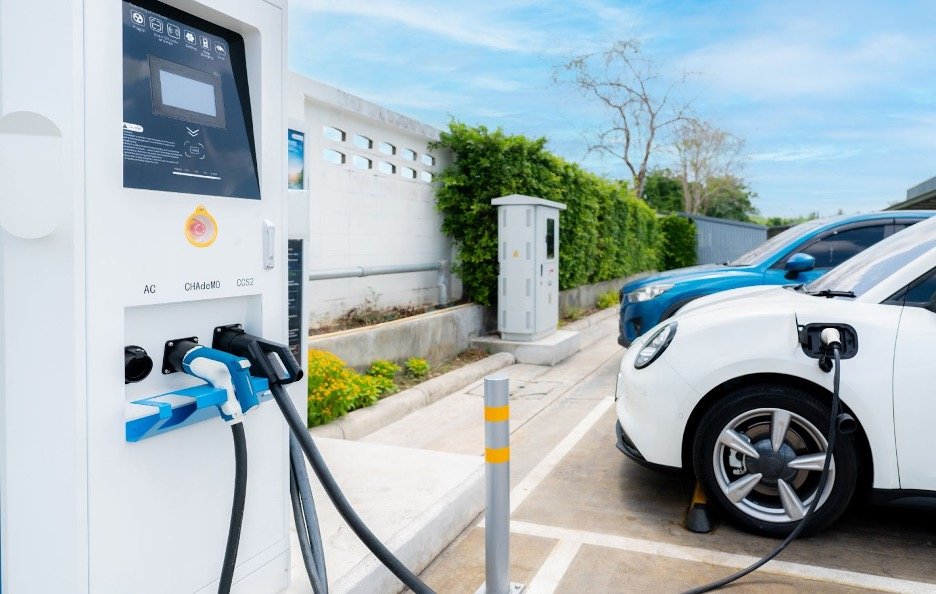See the Latest on NEVI 2023
The National Electric Vehicle Infrastructure Formula Program (NEVI) was approved in September 2022 with a $5 billion boost to help install fast chargers along interstate highways in all 50 states. The ambitious program aims to ensure that EV drivers have access to fast charging along the most frequently-traveled routes, which stretch for 75,000 miles along the nation’s Alternative Fuel Corridors (AFCs).
Under the NEVI program, all states (as well as the District of Columbia and Puerto Rico) have access to NEVI formula funding. Our previous blog details the criteria and funding that apply for eligible projects. The latest updates to the program are a huge step towards establishing nationwide standards for EV charging.
First Round of Submissions
In 2022, all 50 states (as well as D.C. and Puerto Rico) submitted EV infrastructure deployment plans. The proposals for each state are visible in this Joint Office of Energy and Transportation resource and they give a clear picture of the enormous diversity in EV charging nationwide:
EV charging corridors account for less than 1,000 miles in 21 states (just 44 miles in Rhode Island).
By contrast, California (7,082 miles), Florida (6,244 miles), and Texas (3,615 miles) operate the three largest EV corridor networks.
State Snapshot
In July 2022, the New York State Department of Transportation (NYSDOT) submitted the state’s NEVI plan. The state received $25 million in funding in 2022 and $37 million in 2023 to grow its 2,034-mile EV corridor network. As with all state programs, the funds must be initially invested within 1 mile of designated EV corridors (typically heavily used interstate and state highways), and charging stations must be no more than 50 miles apart.
The first sites were selected in Hawaii in July 2023. The 50th state will now have eight chargers on O’ahu to support 788 miles of EV corridor.
Latest NEVI standards
New guidance was released in June 2023 that establishes a national standard for EV charging infrastructure for the first time. Each state must submit an annual EV infrastructure deployment plan to outline how NEVI funds will be used. The deadline for Federal Highway Administration (FHWA) approval was August 1, 2023.
Minimum standards and requirements apply in six key areas:
1.) Installation, operation and maintenance. A minimum number of ports, connectors, payment methods and customer support services now apply. There are also minimum requirements for technicians installing and maintaining infrastructure, as well as better standardization and uniformity for certification, maintenance and customer data privacy.
2.) Interoperability of EV charging infrastructure. The goal is to establish platforms that can connect and communicate from one state to another, both from charger to charger and network to network.
3.) Traffic control devices and on-premise signs. These must now comply with FHWA regulations.
4.) Data submission requirements to identify charger station use, reliability and cost information. Data must be submitted quarterly and annually for storage in a national database.
5.) Network connectivity of EV charging structure. From charger to grid, new connectivity requirements are designed to allow for secure remote monitoring, diagnostics and control.
6.) Standardize the communication to consumers of price and availability. Basic information must be available free of charge to third-party software developers. To prevent price gouging, pricing transparency must be protected when charging prices set by a third party.
An important requirement of the final rule is that all direct current fast charger (DCFC) ports must be capable of charging any combined charging system (CCS) vehicle using a CCS Type 1 connector [LINK to blog on Types of chargers/plugs]. Some states are requiring a NACS connector option.
EV Connect and NEVI
EV Connect software is compliant on the security side and up to date with NEVI standards. The following criteria have to be met (among others):
EV charging stations must be non-proprietary
Must allow for open-access payment methods
Must be publicly available,
Must be located on a designated Alternative Fuel Corridor.
To find out more about how EV Connect can support your NEVI project application, contact us today.

